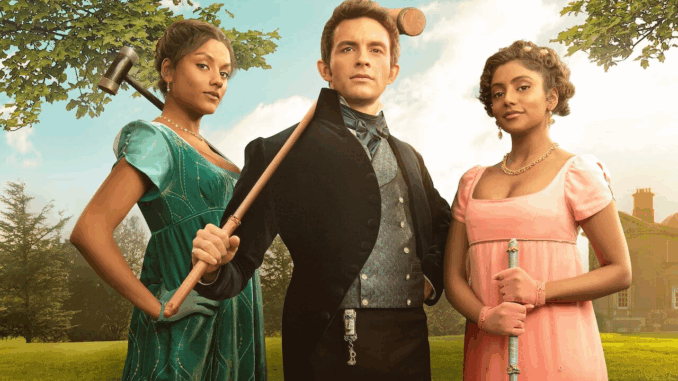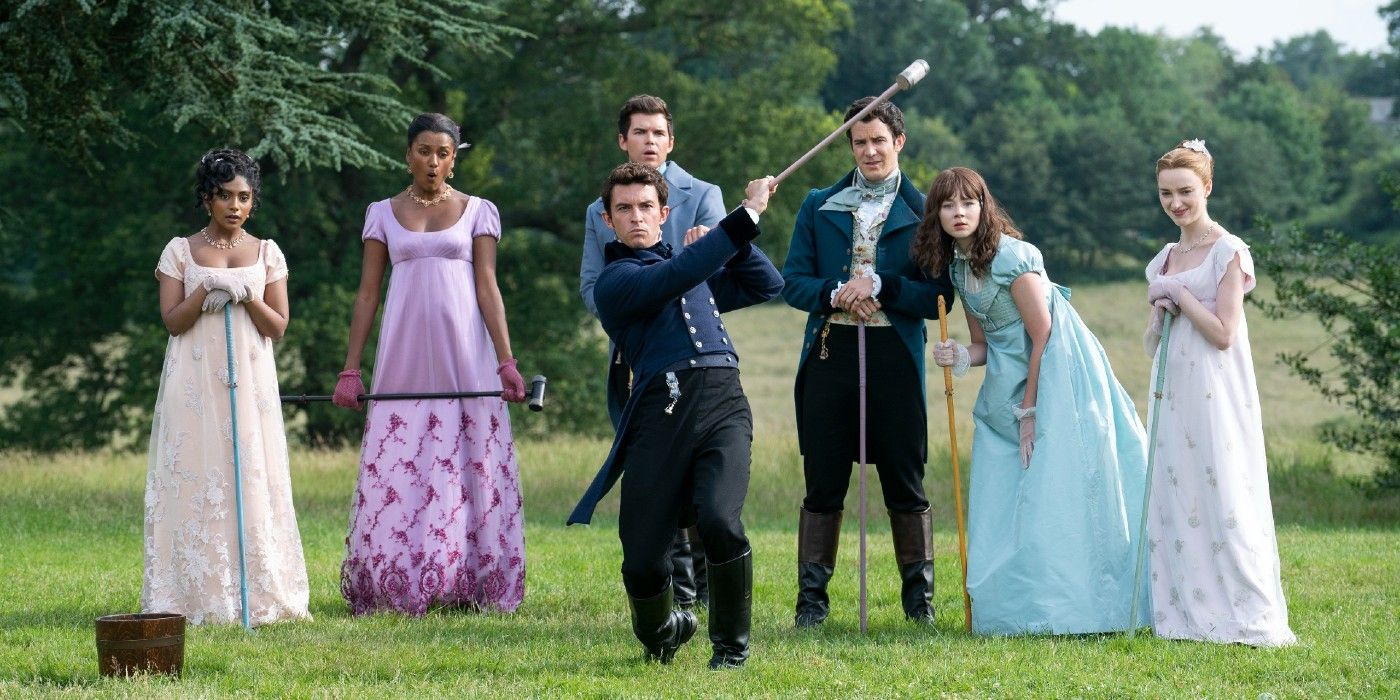
The Viscount and Viscountess Bridgerton — yes, Anthony and Kate are set to grace our screens once again, and I, for one, find myself on the edge of anticipation. Few love stories have left such a lasting impression, and fewer still have been so exquisitely told. But while I rejoice at the promise of their return, there remains one artifact from Season Two I will most certainly not be yearning for.
What, you ask, could possibly mar such a beloved chapter in the Bridgerton saga?
Miss Edwina Sharma.
After countless rewatches, spirited discussions, and more sigh-filled pauses at every stolen Kanthony glance than I care to admit, I have arrived at a most unladylike conclusion. I do not care for her. Not even a little. Not even a whisper of fondness lingers.
How Season Two Delayed Kanthony’s Spark and Bridgerton Suffered for It
The second season of Bridgerton opens with all the promise of a symphony’s overture — each character introduced with elegance and purpose, their paths set to collide in a crescendo of romance and scandal. The first three episodes, in particular, unfold with the polished grace of a well-rehearsed waltz. But as the story progresses, what should have been a smoldering, slow-burn romance between Kate and Anthony is repeatedly interrupted, diluted, and delayed.
Instead of nurturing the delicious tension between our headstrong heroine and brooding Viscount, the narrative diverts again and again to the Featheringtons and their rather uninspired cousin Jack. His dubious dealings with the ton, though perhaps intended as comic relief or secondary drama, feel more like an uninvited guest at a ball, lurching in and disrupting the emotional rhythm we longed to follow.
And then, of course, there is Edwina.
The Triangle That Never Quite Balanced
Let it be said: Anthony bears much of the blame. Torn between obligation and desire, shackled by trauma and duty, he moves like a man blindfolded through a garden in full bloom. Kate, too, wrestles with her own demons loyalty to her sister, fear of impropriety, and a heart she can no longer command.
Edwina, in contrast, is not so much a villain as she is misplaced.
Earnest, graceful, and undoubtedly well-meaning, she nevertheless fails to find her rhythm within the Bridgerton family, indeed, within the story itself. At best, she is a guest; at worst, a placeholder. To suggest she was cruelly betrayed by Kate is a misreading of the emotional tapestry the writers wove. If anything, Kate’s internal struggle was one of the season’s most poignant arcs — torn between protecting her sister and surrendering to a love that felt as inevitable as spring.
But Edwina never truly grows. She never questions the suitability of her match with Anthony, never seems to see what is so plainly visible to everyone else: that Kate is his equal in every way.
A Game of Pall Mall, and a Missed Opportunity
Let us revisit the famed Pall Mall scene at Aubrey Hall — Episode Three’s crown jewel. Here, amid laughter, competition, and familial chaos, the true dynamics are laid bare. Kate shines competitive, clever, and utterly at ease among the Bridgertons. Edwina, meanwhile, falters, her delicacy out of place in this boisterous world.

That moment should have been Edwina’s awakening. A chance for her to glimpse the truth — not just about Anthony and Kate, but about herself, and the life she truly desired. But the opportunity slips away like mist at dawn. The next episode offers no emotional evolution, no insight. She drifts, untouched and unchanged.
The Half-Sister Line and the End of Something Tender
By the midpoint of the season, Edwina’s character begins to feel not only directionless but hollow. The narrative fails to expand her beyond a set of virtues — beauty, grace, gentleness and never imbues her with the depth necessary to make her more than a plot device.
The final blow comes with her cruel invocation of “half-sister.” That word, dropped like a shard of glass, severs any thread of tenderness that remained between the Sharma siblings. It was a line meant to wound, and it succeeded. In that moment, Edwina’s charm curdled, her innocence turned bitter. Was she too young, too blinded by the glittering title of Viscountess, to understand what she was sacrificing? Perhaps. But even youth cannot excuse writing that leaves a character so woefully underdeveloped.
A Pawn in a Game That Was Never Hers
If the goal of Season Two was to chart a sweeping love story between equals, then Edwina’s presence only muddied the waters. She became little more than a pawn, placed between two leads whose connection was immediate and electric.
The love triangle may have added tension on paper, but in execution, it felt like a stalling tactic. One that slowed the inevitable arrival of Kanthony the pairing we all tuned in for and, in doing so, robbed their story of precious moments that could have deepened the passion, the tension, the joy.
Worse still, the season became cluttered with meandering subplots and misaligned priorities — threads that neither served romance nor character, and most certainly not the audience’s longing for emotional payoff.
A Love Story Denied
In the end, Miss Edwina Sharma was never truly allowed to become the heroine of her own story. She drifted through the narrative not as a central figure in a compelling romance, but as a character shaped by circumstance and obligation a symbol of what could have been, rather than a force in her own right. She was neither a meaningful obstacle nor a fully realized participant in the emotional journey unfolding around her. Her arc, such as it was, failed to resonate not due to lack of potential, but because it was never given the substance, evolution, or emotional sincerity needed to root her firmly in the audience’s hearts.
The writers, for all their admirable attempts at grandeur and complexity, held in their hands the makings of a truly iconic love story one fit not only for the Queen, but for the annals of great television romance. And yet, rather than leaning into the raw, magnetic power of Kate and Anthony’s connection from the outset, they chose to delay, to distract, to meander through unnecessary detours that ultimately blunted the emotional momentum. In their effort to build tension, they diluted it. In striving to complicate the narrative, they weakened its emotional truth.
The result was a season that too often felt like a missed opportunity a slow waltz that never quite reached its final flourish, a symphony that held back its most powerful notes. One cannot help but wonder what might have unfolded had the creators fully embraced the intensity of Kanthony from the very beginning — had they trusted the audience to follow a love story that didn’t need triangles or diversions to be riveting. Perhaps then, we would have received a season not just rich in potential, but one that fulfilled it with grace, clarity, and unrelenting passion.